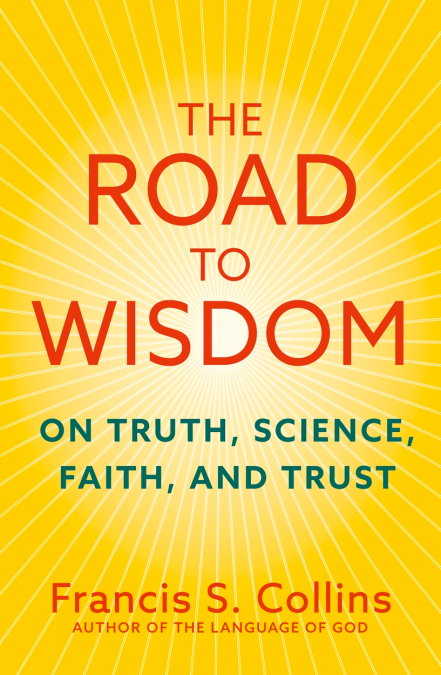
Shutterstock
Francis Collins is arguably one of the most powerful biologists in the world, serving three US presidents. As a geneticist, I knew about his work to identify the cause of Cystic Fibrosis and a number of other key genetic diseases before I was aware that he was a Christian. His achievements also included leading the Human Genome Project and, much later on, the race to find a vaccine and effective treatments for COVID-19.
Collins is very open about his faith, identifying as an evangelical. After writing a best-selling book, Language of God, which shared his journey to faith as a young adult, he established the organisation BioLogos to help people explore ideas about the harmony between science and Christianity. Anyone who has met him will know that he is not just highly intelligent and successful, but also a down-to-earth person who takes people seriously. His upbringing by parents working in a government-sponsored community for impoverished miners during the Great Depression may have something to do with this.
 This latest book is Collins’s response to the growing mistrust of scientists among the US public, and the disturbing rise in polarisation in recent years. In part, it has grown out of his engagement with the bridging organisation Braver Angels, which brings people together from either side of the US political divide.
This latest book is Collins’s response to the growing mistrust of scientists among the US public, and the disturbing rise in polarisation in recent years. In part, it has grown out of his engagement with the bridging organisation Braver Angels, which brings people together from either side of the US political divide.
The son of a drama teacher, Collins knows how to tell a story. The opening scene sees him crying in the toilets when his first project as a medical researcher goes up in smoke. He continues in this vein in several places throughout the book, sharing how he didn’t publish a single paper in his first three years of running his own lab and how one member of his lab was caught falsifying data. He learned the hard way that failure is an essential part of the scientific process, and that trust is key.
The premise of this book is that wisdom is key in discerning truth, and also to communicating it outside of the scientific community. The scientific method works very well on the whole, with inbuilt checks and balances. But trust in science involves more than faith in the reliability of data. In a survey of the US public before and after the COVID pandemic, confidence that scientists would act in the public interest went down from 86 to 69%. This 17% drop is trust was caused – at least in part – by mistakes in communicating and implementing the shifting policies that we all experienced over several years of the pandemic. Collins is very open about the errors he made during that time. He also gives some much-needed scientific details and behind the scenes perspective that paint a clearer picture of what was going on during that fraught time.
It is to be expected that someone who was a lynchpin in the scientific process can share some insightful behind the scenes analysis. Collins explores vested interests and ethical boundaries, demonstrating the way in which decisions can be made when shrill voices call for public policy one way or another. I found his treatment of truth and our own webs of belief especially thought-provoking. But I did wonder why, having embraced the idea that no one is completely unbiased, he continued to use such loaded words as ‘objective facts’.
This book is a call for a better way forward – for a church that meets people’s longing for something more and stalls the loneliness epidemic. Collins calls for trust in reliable sources, not unquestioning partisan support of any side. The thought-process he lays out is rational but also provides footholds for moving forwards. Stories of conversations with individuals on the other side of the scientific-political divide were especially heartening. I would happily put this book in the hand of anyone who is fed up with politics and polarisation, whatever their background in faith or science.
This review was originally published by Premier Christianity magazine, and is reproduced here by permission.
The Road to Wisdom: On Truth, Science, Faith and Trust by Francis Collins is available in the UK from Hachette.




